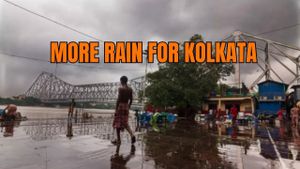On February 21, 2025, celebrations around the world marked International Mother Language Day, highlighting the importance of linguistic diversity and multilingualism. Nations gathered to promote awareness of the value of languages as tools for education and culture, with events particularly notable in Ethiopia where policymakers and experts convened.
The event, aptly themed "Languages Matter: Silver Jubilee Celebration of International Mother Language Day," took place at the United Nations Conference Center in Addis Ababa. There, Aboubakri Diaw, chief of staff at the UN Economic Commission for Africa, emphasized the historic significance of the day. "This celebration provides a unique opportunity to take stock of the progress made in promoting multilingual education, recognizing the power of languages to unite individuals, societies, and nations," he stated.
United Nations Educational, Scientific and Cultural Organization (UNESCO) data revealed alarming trends surrounding language preservation. Currently, around 40 percent of the estimated 8,324 languages worldwide are at risk of disappearing. Abdoulaye Salifou, education program specialist at UNESCO, reiterated the pressing need to promote linguistic and cultural diversity. He stated, "We must acknowledge the pivotal role of mother languages in education, communication, and cultural practices. It’s not just about preserving words; it's about sustaining identities and worldviews."
Youlin, deputy head of the Chinese Mission to the African Union, highlighted the international community's responsibility to protect language diversity as part of human heritage. He remarked, "Language is not just communication; it is our cultural legacy, representing our history and future. The celebration reminds us of our duty to safeguard it for generations to come."
Far across the globe, digital activism is rising as a viable method for promoting indigenous languages. Juan Vázquez Méndez, known as Xunté, is actively working to preserve the Tzeltal language from his hometown of San Juan Cancuc, Mexico. Through the 2024 Mayan Language Digital Activism Fellowship, he empowers local youth to utilize digital media for documenting their culture and addressing social issues.
"Approximately 90 percent of the inhabitants here still speak Tzeltal, but we lack platforms to communicate our story to the wider world. That’s why I’m training young journalists to share our worldview and challenges through responsible digital media practices," Méndez explained of his initiative.
Méndez’s efforts are emblematic of greater movements advocating for language preservation and empowering the next generation of indigenous leaders. His project aims not only to document local stories but also to uplift the community’s voice and identity, ensuring Tzeltal remains vibrant.
Meanwhile, discussions among Russian officials highlighted the fragility of languages within the country. With more than half of Russia’s many languages at risk of extinction, the need for updated legislation to support language preservation became apparent. Konstantin Derevyanko, deputy chairman of the Council under the President, noted the significant updates for the languages of the peoples of Russia, projected for submission by May 1, 2025. "We are at the preliminary stages of creating a language registry, engaging experts and public opinion to avoid conflicts and to truly reflect our diverse linguistic inheritance," Derevyanko commented.
At the same time, Ildar Gilmutdinov, from the State Duma Committee, stressed the importance of careful deliberation over which languages to include within this framework, ensuring all languages receive appropriate recognition. "Each language holds immense value to its people. Our task is to respect and protect every language, regardless of the number of speakers," he asserted, discouraging the notion of ‘small languages.'
Andrey Kibrik, director of the Institute of Linguistics of the Russian Academy of Sciences, shared insights from past efforts supporting language survival, noting the import of intergenerational transmission. "The intergenerational transmission of languages is extremely important. We must encourage children to learn their ethnic language at home before they even enter school, ensuring it remains part of their identity," he urged, pointing out the impact of globalization on local languages.
International Mother Language Day serves as both a celebration and call to action—a reminder of the diversity of languages and cultures worldwide and the sincere need for advocacy and preservation. From Ethiopia's call for multilingual education to the digital activism efforts led by indigenous youth, it’s clear the road to safeguarding linguistic heritage is multifaceted and requires collective, informed efforts. Together, societies can raise awareness and celebrate the uniqueness the world’s languages provide, encouraging policies and practices aimed at sustaining our cultural legacies.



